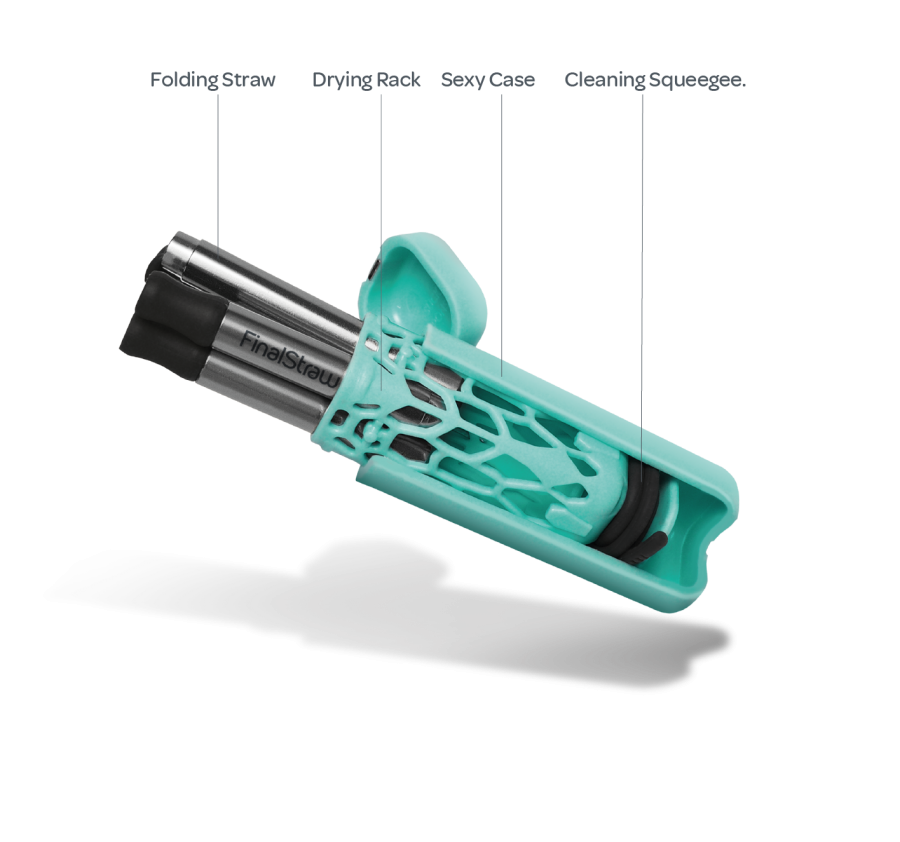The Final Straw
Stop being such a sucker.
Buying a non-disposable straw may be more helpful than you think.
December 21, 2018
There is an infamous picture that has been on many different social media platforms of a sea turtle with a straw buried in its head. This picture has sparked movements internationally. Plastic is constantly polluting the ocean and the environment and affecting the flora and fauna, and this turtle showed that in a stark, horrifying manner. There are many volunteers who take time out of their days to try and pick up the messes of plastic and non-biodegradable garbage that other people have left behind in the environment. Many companies are starting to take up the action of eliminating straws from their production to help combat this waste.
Research done by National Geographic has shown that roughly eight million tons of plastic flow into the ocean annually. Even though straws only take up 0.025 percent of that trash, that doesn’t mean that it’s something we should ignore. Eliminating straws is a small step to fix this problem that everyone can contribute to, one less straw at a time. This is an issue that can easily be taken care of through eliminating straws from stores, restaurants, and other corporations. Straws are handed out daily to many consumers without question. With public awareness, this can easily be taken care of, resulting in .025 percent less plastic in our environment affecting our flora and fauna. National Geographic says that in the U.S. alone, 500 million straws are used every single day, and, “there as many as 8.3 billion plastic straws that are laying on our beaches.” It is not going to be a quick and simple change from using straws daily to not at all. There have been solutions attempted to eliminate plastic straws by introducing paper straws that are biodegradable, but they aren’t popular because they become wet and soggy.
This issue has been publicly discussed many times in the past, but not much change has occurred or been maintained. Recently, this issue has been brought to the forefront again, especially as social media distributes information and awareness. Many corporations have noticed the change people have been wishing for and have started to find solutions. Seattle became the largest city in the U.S. to fully ban all plastic straws from all stores, restaurants, and anywhere else. Many stores and fast food places have also followed suit. McDonald’s, one of the world’s foremost fast food restaurants, has taken the influential step to solve the problem by banning plastic straws in their U.K. and Ireland restaurants. National Geographic states that Alaska Airlines is the first airline to phase out their plastic straws.
Straws aren’t a necessity for most people. For those with a disability, or even just those who prefer straws, there are other solutions. The FinalStraw is a positive new invention for those who either need or prefer a straw when drinking a beverage. FinalStraw contains a collapsible straw inside of a small, convenient carrier that can hook onto your keys for an easy way to bring along your own straw. The price for the straw is $25, including a case that allows the straw to dry and includes a cleaning squeegee. It takes about 1000 uses of the straw in order to make up the cost of the purchase. That may seem like a lot, but taking a drink or two every day using the straw will make it worth your purchase (and the environment’s health) in no time.










Mimi Burkholder • Feb 2, 2019 at 11:03 am
Good article! Thanks for brining this awareness.
I purchased reusable glass straws online and they work great, and come in many colors and sizes. They are easy to wash with a straw brush, and they are actually quite durable. Using less plastic is GREAT.